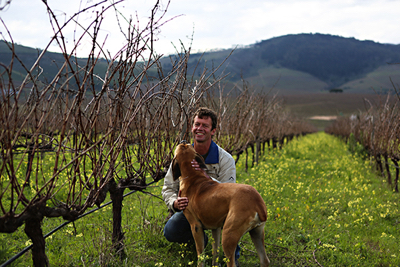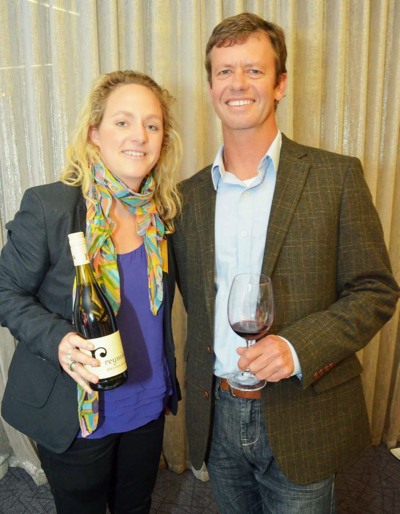With Knowledge Comes Obligation
An Interview with Johan Reyneke and Jessica Garlick
In South African Wine on 16 Jun 2015
I became acquainted with Reyneke Wines when some of their cows found their way to De Toren during my time there for the 2011 harvest. (When they say “free range,” they mean it!) Since then, I’ve heard the farm’s name come up regularly in conversations about biodynamics, and a friend recently directed me to Johan Reyneke’s appearance on the excellent podcast The Splendid Table.


Given my longtime fascination with biodynamic wines, I had some questions for the Reyneke team. Vineyard manager Johan Reyneke and winemaker Jessica Garlick were kind enough to share their insights with me via email.
What was it that drew each of you to biodynamic farming?
JR: I did a degree in environmental ethics and with knowledge comes obligation.
JG: It was in 2013 after a vintage in the Northern Hemisphere that I visited a friend in Florence. We wanted to celebrate seeing each other. I opened up her fridge and there was a bottle of Reyneke Reserve White 2011. This wine blew me away. I mailed Rudiger [Gretschel, head winemaker] the next morning. I had to be part of this project. In 2014 I started as part of the Reyneke team as assistant winemaker. There is no way I could go back to conventional winemaking.
Your approach stays away from many technological advancements in winemaking. What advances do you think are really essential––sulfites, maybe, or checking pH?
JG: Here at Reyneke we strive to produce wines which show a sense of place––producing wines which show what the Reyneke site gives us. The wine is made in the vineyard. Once Johan delivers the top quality fruit to the cellar our obligation as winemakers is to really just maintain this quality. The fermentation kinetics is of critical importance. With that said we do very little analytical analysis; we work very much by feel.
I love the aspect of biodynamic farming that focuses on minimizing waste and ensuring more independence from market forces. What is the biggest challenge of that?
JR: Probably twofold. One: get your mindset right and understand that “waste” is a cultural concept and not a natural one. Two: Take the effort to develop on farm systems that facilitate the process of self-sufficiency.
What is the most challenging grape varietal you’ve worked with on your site? What has been the easiest? Are some wines easier to make biodynamically than others?
JR: As a farmer I would say pinotage has been tough and syrah relatively easy. Jess would be the one to ask about the wine.
JG: Pinotage is a hard one. I think we can definitely do a better job at this (the South African industry as a whole). I love working with syrah on Reyneke.
What wines of the world do you particularly admire?
JR: I’d give anything to meet the viticulturist of Domaine de la Romanée-Conti. Other than that I like Claphe for syrah and Didier Dagueneau’s Silex for a top sauvignon blanc.
JG: Those producers doing things natural make me super excited for this industry. Thierry Germain Saumur-Champigny Rouge; Domaine Foillard Beaujolais; skin contact wines [like] Buçaco Branco of Portugal; and of course the Northern Rhone syrahs which are our inspiration, [like] Jamet 2011.
Of all things that you could farm, what got each of you into wine?
JR: My hair. But that is a long story.
JG: My first vintage in 2010 at Boekenhoutskloof. The energy during a harvest season and the knowledge of the people that have crossed my path in the wine industry since then keep me inspired to live out my dream of producing wine.